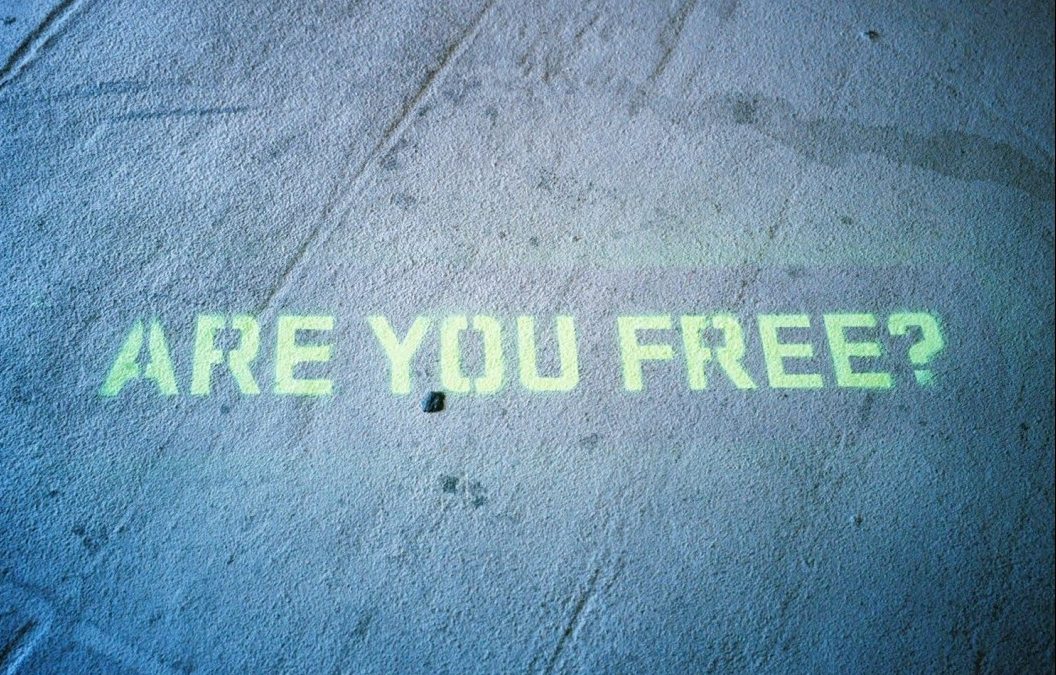WHICH SIDE ARE YOU ON?
Newsreel
By James Strauss
FREEDOM, that word used to describe a state of being that doesn’t exist but seems to exist in some future time or even the present if we can just get over to where the conditions are ripe for its appearance or existence at all. It’s not about any of that, of course, because real life requires that humans all live together, for the most part, among and with one another. Rules of conduct, whether those be laws, ordinances, or habitual mores enforced by a society have been identified as being required for everyone to survive among one another. By the very existence of generalized rules, monitored and enforced by a police power, the word freedom disappears into a fog of comprehension difficult or nearly impossible to understand or life with. Freedom is something, a word, that means that one human being can do, in any circumstance, anything that human wants to. Just from reading that expanded definition of freedom any reader absorbing this article can quickly come to easily understand that open, wild and unfettered freedom cannot and does not permeate the works of man’s social or physical interactions.
Take the view of a prison guard, staring though the barbed wire at prisoners on the other side. That guard invariably has no idea what the prisoners might have done to received such treatment. The guard, invariably, doesn’t care. The prisoner, on the other hand, staring out through the wire at the guard, stares in unspoken wonder at men and women who would select to be a part of the prison complex if any other choice was offered. The guard goes home every night (if he’s lucky or senior). The prisoner has a confirmed and detailed ‘out’ date while the guard has no such thing…other than a hazy date well into the future called retirement. Where is the ever shifting sliding scale of prisoner/prison guard scenario to play out in reality. The guard pays for lodging, food, clothing, transportation and so much more, but the prisoner, the downtrodden and looked down upon has all those costs assumed and taken care of, no matter at what minimal level. Who is the free person in this situation? The prisoner inside the wire or the prisoner (guard) supposedly outside the wire but serving a life sentence until some supposed retirement date?
“Freedom is just another word for nothing left to lose,” is a set of lyrics sung by Janis Joplin so many years ago, when she exercised not long after her freedom to leave this life. What kind of freedom had she discovered that was more an imprisonment than freedom at all?
Which side of the wired fence do you find yourself today? Are you the ‘free’ guard, or the imprisoned inmate and, in looking at the reality of it, what’s the real difference? Everyone wants to be free. Free to do whatever anyone or everyone wants to do, but that does not work when sociology, anthropology and group relations come into play. There are at least 47,000 laws, ordinances or other legalized control devices that are applicable to every human living in the United States, with the population being aware of around a couple of hundred, until some violation of an unknown law or rule is violated.
America is a land, culture, and society of free men and women who have little in the way of the freedom they imagine. And that is not a bad thing, their inability to understand that they are not really free. Freedom is what we must have as individuals but deny to the those around us because we are different. Every person is different, and therefore only the rules for generally accepted conduct can allow for a truly ‘free’ social order. We cannot be totally free, or that guy in the broken-down house at the end of the block, with a loaded AK-47 will come to control every aspect of one’s supposedly free life.
America provides some of the most freedom-oriented behavior on earth. The Unties States also offers some of the most controlled environments for social interaction on that same planet. How is that to be viewed? The United States has more police personnel than all other countries combined. How should that be viewed, in terms of freedom? How are American’s supposed to view the results of this application of the man rules and laws? How is the normal ‘law-abiding’ citizen of this country supposed to feel truly free, unless that citizen is exercising a great degree of fictional belief?
These are the questions that all of us should be primarily concerned with, but basically are not. If citizens want to be free then they must first define what it is to be free and what necessary constraints must be placed upon themselves and others around them to make that freedom a reality.
















Don't Miss any Updates or New Chapters
Join our mailing list to receive the latest news and updates from our team. You can easily Opt-Out anytime
You have Successfully Subscribed!